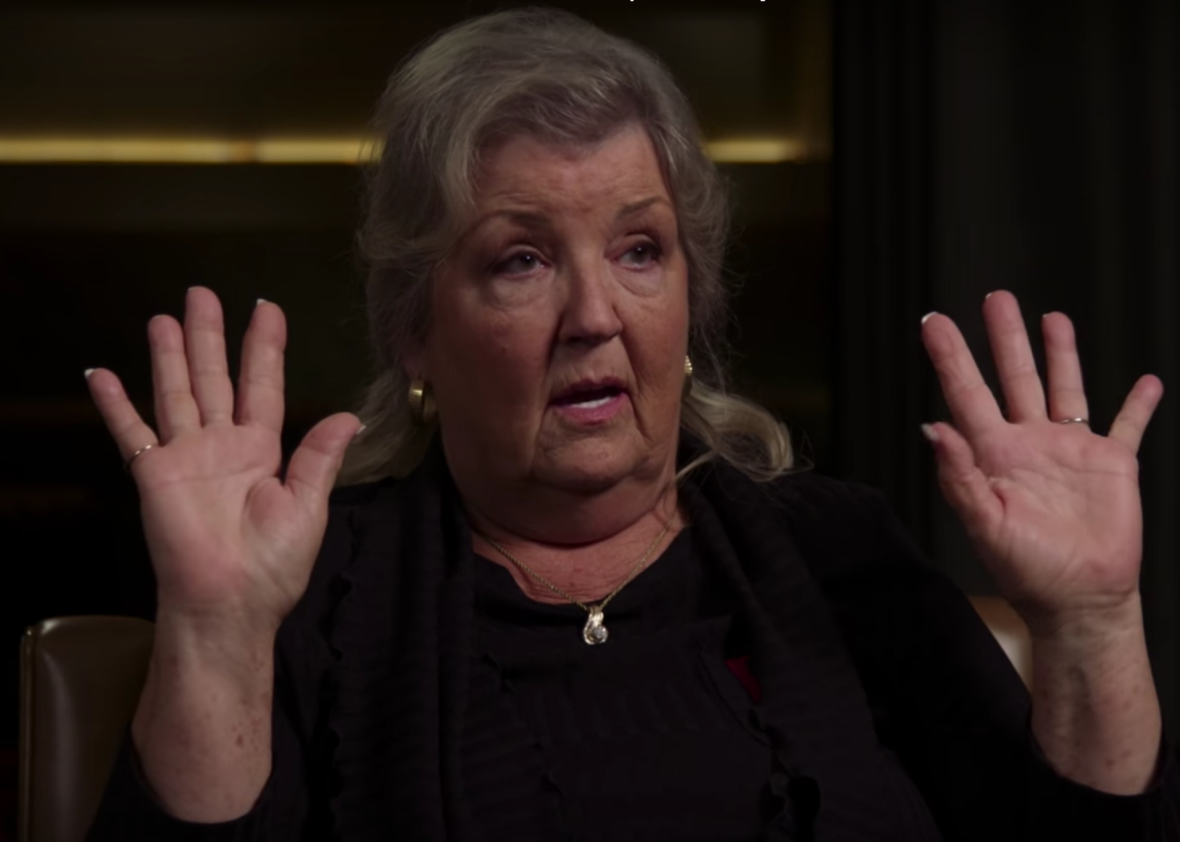We knew it was coming. First, Donald Trump raised more than a few eyebrows Saturday night, when in the middle of the flood of unendorsements from GOP leaders, he decided to retweet two tweets written by Juanita Broaddrick. The nursing home administrator who in 1999 publicly accused Clinton of raping her in 1978 took to Twitter to say Trump’s words caught on a hot mic 11 years ago are nothing in comparison to Hillary Clinton’s actions.
That seems to have been the warm-up act, as on Sunday Trump took to Twitter again to direct people to a new Breitbart video interview of the notoriously press-shy Broaddrick, who recounts the alleged 1978 rape in excruciating detail:
I tried to push him away. And I only weighed about 120 pounds at that time. He was a very large man. And I kept telling him, “No. I don’t want this at all.” …
And he grabbed me again, very forcefully. And started biting on my top lip. And this was extremely painful. I thought he was going to bite my lip off. And that’s when he pushed me back onto the bed.
At one point, a crying Broaddrick asks to stop, saying it’s difficult to recount the events because she is still “afraid of him … especially if she becomes president. And I know it’s looking that way so it’s frightening.”
Broaddrick then goes on to describe how Hillary Clinton approached her at a fundraiser three weeks later. “She starts saying, ‘I want to thank you for everything you’re doing in Bill’s campaign.’ … I thought someone from behind had grabbed a hold of my arm but it was her, she grabbed a hold of my arm and my hand and she pulls me into her and she says with this very angry look on her face … and says, ‘Do you understand? Everything you do.’ ” Broaddrick says she felt that Hillary Clinton knew what had happened.
None of this is new, of course. Broaddrick’s 1999 allegations were endlessly debated and parsed in the media at the time and no charges were ever brought. (If you want to know more details about the case, check out this Slate Explainer from 1999). Yet the video interview virtually assures that a new generation of voters will be exposed to a story that they may only have a passing familiarity with—if that. It also gives fodder for Trump to direct viewers during Sunday night’s debate where now it seems likely he will dredge up these old allegations and portray himself as the anti-rape candidate.
Perhaps more importantly though is a point that Slate’s Michelle Goldberg brought up in a piece in December: The way we talk about rape and sexual assault has changed. And Trump is banking on using that to his advantage. Goldberg explains:
The cases of [Paula] Jones, [Kathleen] Willey, and Broaddrick have been very thoroughly investigated and endlessly chewed over. No evidence against Bill Clinton was ever found, though he did settle Jones’ sexual harassment lawsuit for $850,000. But our rules for talking about sexual assault have changed since the 1990s, when these women were last in the news. Today, feminists have repeatedly and convincingly made the case that when women say they’ve been sexually assaulted, we should assume they’re telling the truth. Particularly when it comes to Broaddrick, it’s not easy to square the arguments against believing her with the dominant progressive consensus on trusting victims. This is a tension that people on the right are eager to exploit.
